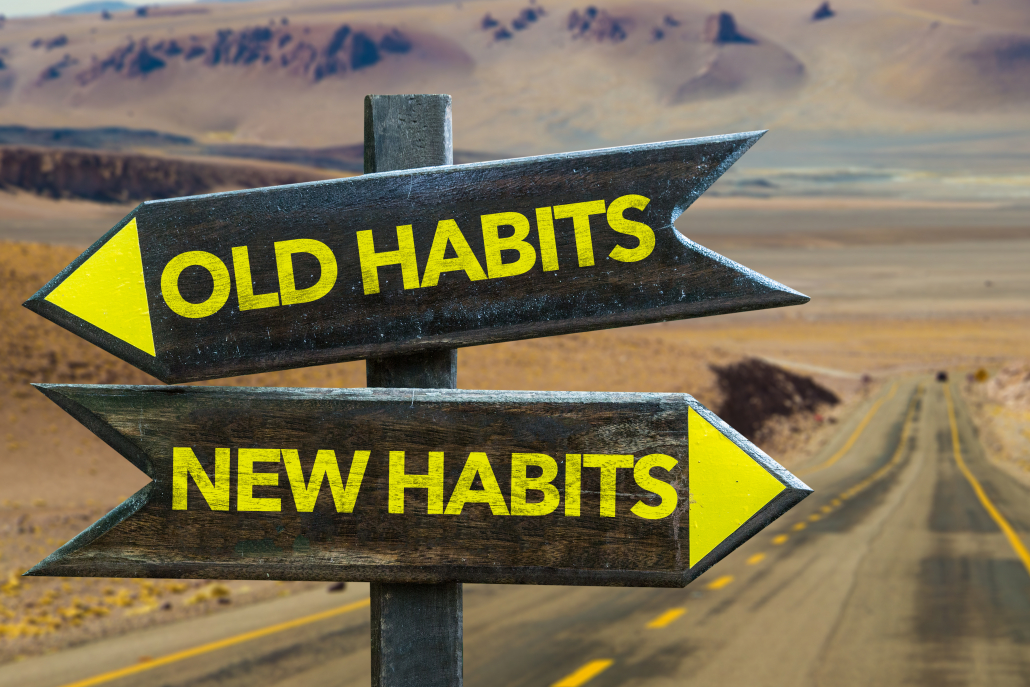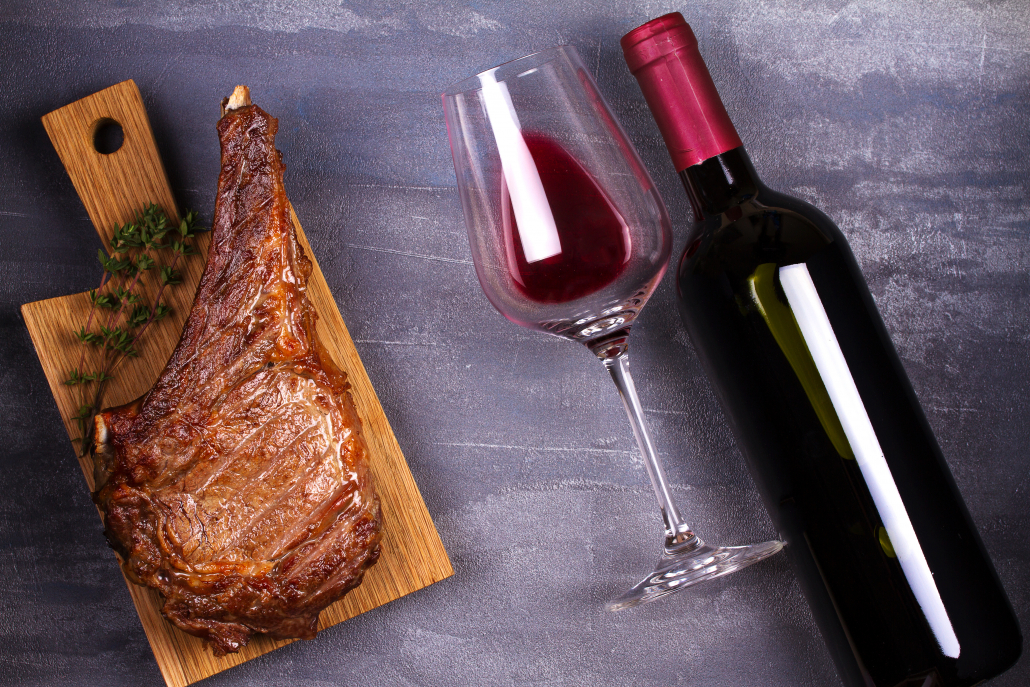We include products in articles we think are useful for our readers. If you buy products or services through links on our website, we may earn a small commission.
Carnivore Diet and Alcohol: What you Need to Know
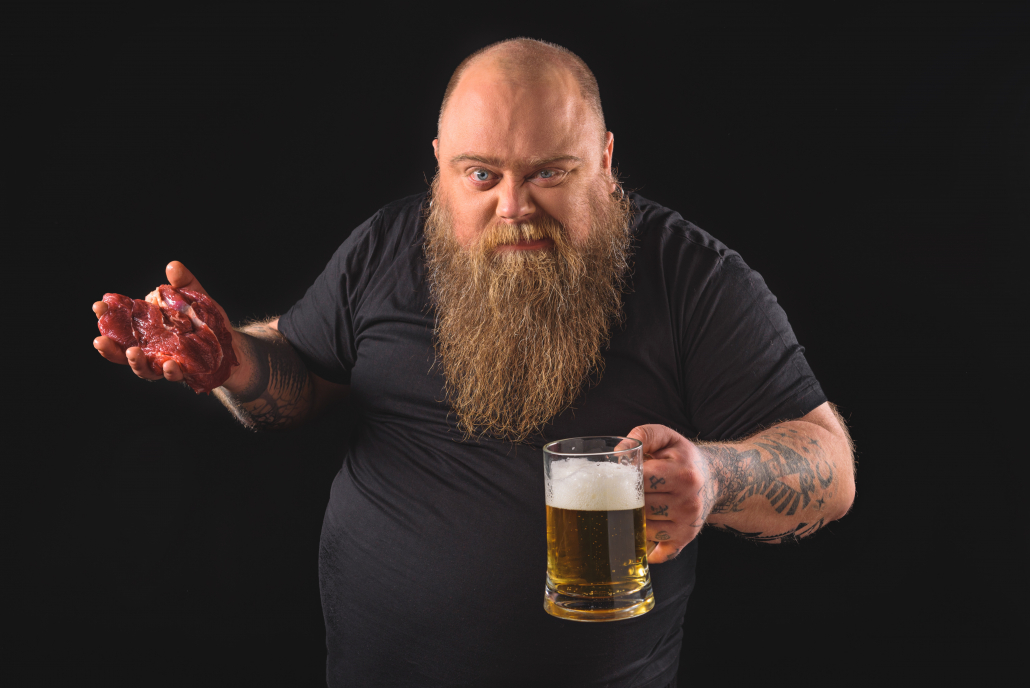
If you’re a practicing or aspiring carnivore and you’re wondering about alcohol, the short answer is that the carnivore diet and alcohol are not compatible.
A carnivore diet meal plan is straightforward: only meat and other animal products like cheese and butter. Alcohol is made from fermenting grains and fruit. This makes alcohol on carnivore a clear no go.
If you’re choosing the carnivore diet, you’re probably serious about taking your metabolic health into your own hands. Since alcohol is a toxin that’s clinically proven to negatively affect both physical and mental health, then letting go of alcohol along with other processed plant foods will only increase the benefits of going carnivore.
That said, if you’re truly an occasional drinker, and you limit yourself to a drink on rare and special occasions, you’ll be cheating, but it won’t negatively affect your health. The key here is not lying to yourself about how often and how much you drink. If you’ve got a drinking problem going carnivore can help you kick it.
If you’re not addicted to alcohol, then a drink once in a while won’t ruin your carnivore lifestyle and doesn’t have to be a source of guilt or shame.
But if you need further explanation, let’s take a look at the main issues with alcohol on carnivore.
Table of Contents
Alcohol is Addictive
We all know that alcohol is addictive, but you might find it illuminating to touch on why and how.
Like other addictive drugs, alcohol has powerful effects on our brain. It creates short-term pleasurable feelings while blunting negative feelings.
If you’ve got a lot of bottled-up negative feelings, a loud inner critic, or just a lot of stress and anxiety, turning these feelings down can motivate you to drink again and again despite the risks to your well-being.
Over time, using alcohol to soothe difficult emotions causes changes to the structure of your brain that make it very difficult to control how much you consume. You also become more likely to relapse after quitting.
Eventually, you can become so physiologically dependent that quitting drinking can cause extremely difficult withdrawal symptoms and even death.4
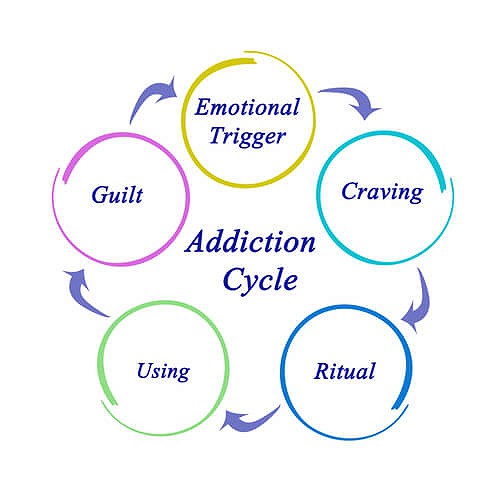
The carnivore diet is a practice of mindful eating that along with Dr. Kiltz’s pillars of health and wellness, intermittent feasting (fasting), and low-intensity exercise can help us shed our limiting addictions–not just to alcohol, but to everything that keeps us from a deeply satisfying, growthful, and lovingly interconnected life.
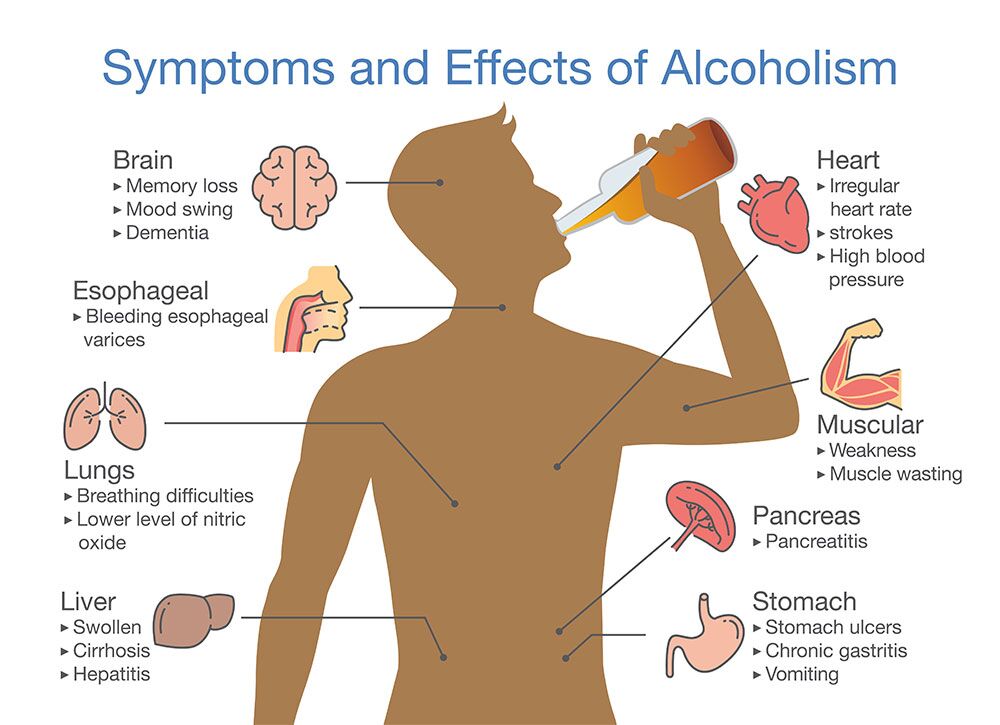
Interferes with Metabolism
When you drink alcohol, it gets absorbed into your bloodstream, where it’s broken down into a toxic substance called acetaldehyde.
Your body then breaks down acetaldehyde into acetate, which is finally metabolized into water and carbon dioxide that your body eliminates–which is why you have to pee so often when drinking. [1]
Because of the toxic properties of acetaldehyde, your body prioritizes processing and getting rid of it over all other metabolic functions.
Remember that a carnivore diet is a version of a ketogenic diet, requiring consuming large amounts of fatty keto meats. Because the processing of alcohol takes place in your liver, your body is less efficient at ketosis–the process of turning fatty acids into energy. [2]
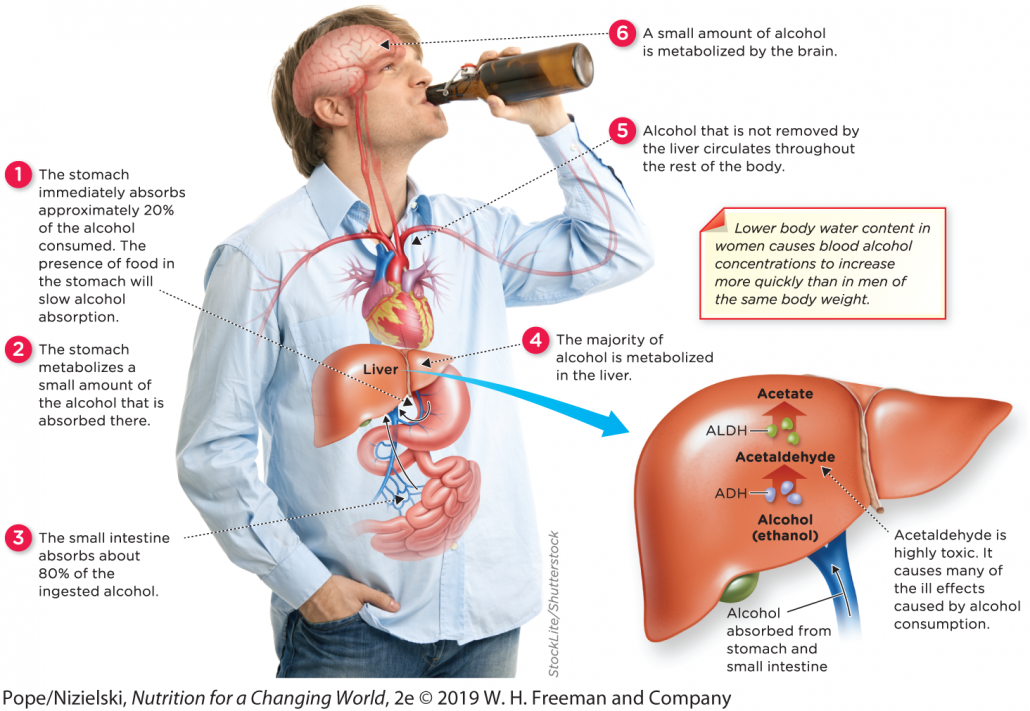
Increases Food Cravings
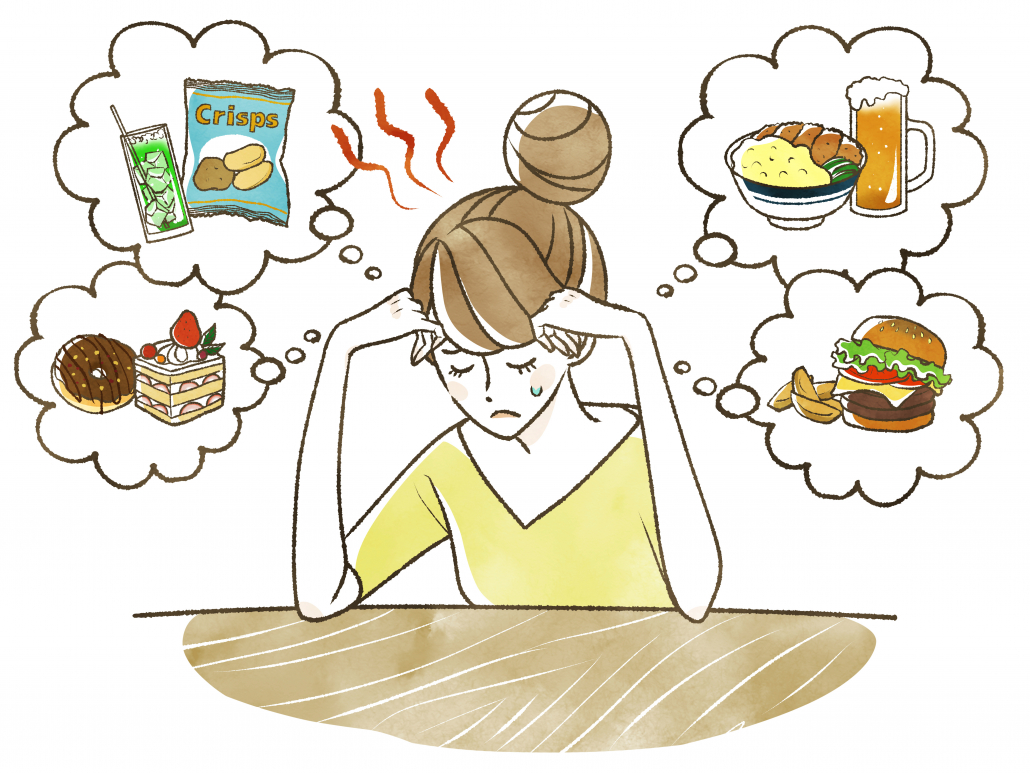
As we alluded to above, drinking alcohol stimulates reward/pleasure centers in your brain. Not coincidentally, these centers are also stimulated by eating sugar–which is partly why carbs are so addictive.
The overlap between the effects of both alcohol and sugar in the brain are so pronounced that studies show consuming sugar can be a gateway to alcohol use. [3]
So when you drink alcohol and stimulate these addictive reward centers, your brain can push you to eat high-carb foods that are not on the carnivore diet food list.
A study of 282 college students found that almost 50% reported overeating and making unhealthy eating choices after drinking. [4]
Similarly, a 2010 study of women found that “Alcohol also increased rated appetite once the food had been tasted, suggesting alcohol may increase food-related reward.”
In other words, drinking makes us eat more while reducing our discernment about what we eat. [5]
Well-known keto thought leader Maria Emmerich sums it up: “The more you drink the more you tend to eat; and unfortunately, drinking will make your liver work to convert the alcohol into acetate, which means that the foods you consume at this time will be converted into extra fat on your body.” [6] [7]
More Likely to Get Bad Hangovers

When it comes to the carnivore diet and alcohol, combining the two will likely get you more inebriated faster, and cause worse hangovers.
When you body prioritizes alcohol metabolism (i.e. getting rid of poison) your fat metabolism along with a process of turning protein into glucose to feed parts of your brain gets interfered with. Acetone gets sent to your brain, leading to quicker and more intense intoxication.
In other words, alcohol on carnivore can make you a cheap and sloppy date.
On the standard American diet, eating a ton of carbs can slow down alcohol absorption by the brain. But on carnivore there’s no option of carb buffering.[8]
Loss of Willpower and Poor Choice Making
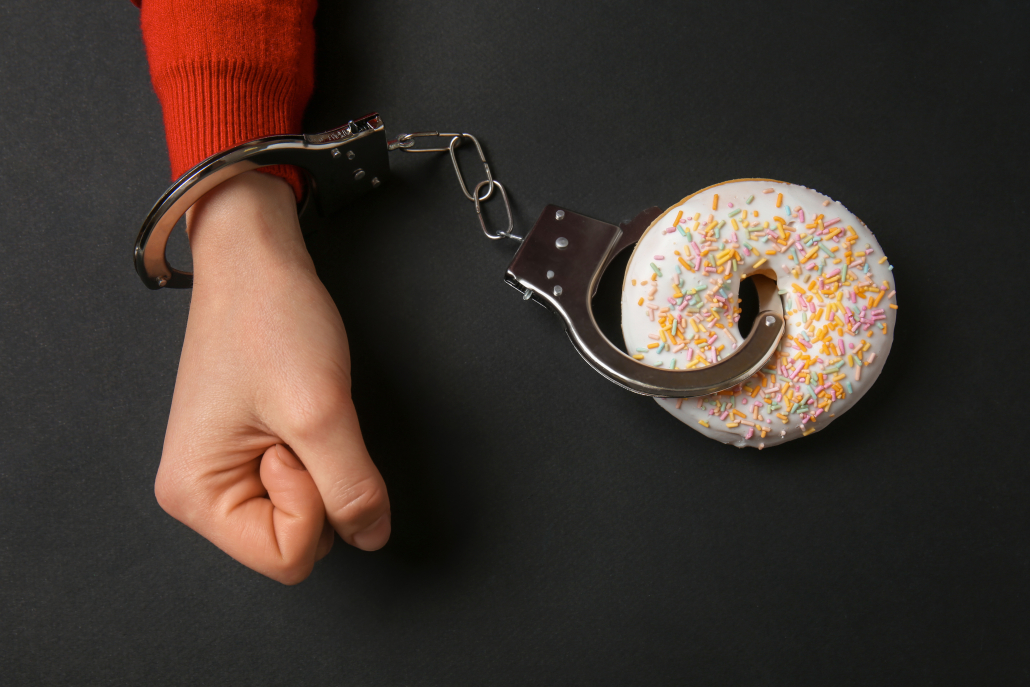
As a depressant, alcohol slows the function of the central nervous system, which affects our decision making ability. This can result in poor choices around scenarios like drunk driving, unwanted sexual encounters, and eating junk food.
The carnivore diet presents a major change from lifelong eating habits. This takes discipline and repeatedly making choices that go against the flow of easy access to sugary, hyper-palatable processed foods.
Alcohol can interfere with our ability to make choices that benefit us in the long term, especially when these choices call for turning away from sugary, carb-loaded foods. As we saw above, alcohol stimulates our appetite, specifically our sugar addictions.
I’m Going to Drink Alcohol on Carnivore Anyway
If you know you’re going to cheat and effectively turn your carnivore diet into a standard high-fat low-carb keto diet, then this section is for you.
Drinks to Avoid on a High-Fat Low-Carb Diet
- All drinks with tonic water. It’s basically soda with 32 grams of sugar per 12oz.
- Avoid regular beer
- Avoid Port, Moscato, and Riesling wines
- Ditch the Fancy cocktails–they’re loaded with sugary liquors and simple syrup
Carbs in Popular Mixed Drinks
| Type of Alcohol | Serving Size | Carb Content |
| Bloody Mary | 1 cup | 10 grams |
| Regular Beer | 12 ounces | 12 grams |
| Margarita | 1 cup | 13 grams |
| Whiskey Sour | 3.5 ounces | 14 grams |
| Cosmopolitan | 3.5 ounces | 22 grams |
| Sangria | 1 cup | 27 grams |
| Pina Colada | 4.5 ounces | 32 grams |
Low-Carb Alcohol Options
While acknowledging that alcohol is simply not carnivore, if you insist on drinking, here are some low-carb tips.
- Keto wines including dry Merlot, Pinot Noir, and Cabernet Sauvignon
- Dry white wines like Chardonnay, Champagne, Pinot Grigio, and Sauvignon Blanc
- Distilled liquors including mezcal, tequila, gin, vodka, rum, and whiskey
| Type of Alcohol | Serving Size | Carb Content |
| Rum | 1.5 ounces | 0 grams |
| Vodka | 1.5 ounces | 0 grams |
| Gin | 1.5 ounces | 0 grams |
| Tequila | 1.5 ounces | 0 grams |
| Whiskey | 1.5 ounces | 0 grams |
| Dry Red Wine | 5 ounces | 3-4 grams |
| Dry White Wine | 5 ounces | 3-4 grams |
| Light Beer | 12 ounces | 3 grams |
Dr. Kiltz’s Bottom Line: Carnivore Diet and Alcohol
The carnivore diet is an all meat and animal product way of life. Alcohol is distilled from grains and fruits, so it’s not a carnivore diet food.
Alcohol in any form is a toxin that can be harmful, especially for people with medical conditions. If you’re going carnivore it’s likely that you’re trying to remedy some medical condition, or you’re simply serious about supporting your metabolic health. In which case drinking alcohol just doesn’t make sense.
If you do choose to break carnivore and drink occasionally, it’s important to know that on a high-fat low-carb diet, your body processes alcohol differently. Alcohol interferes with fat metabolism, increases weight gain, and can get you drunk faster, more intensely, and leave you with worse hangovers.
Alcohol on carnivore also stimulates reward pathways in your brain associated with sugar addiction, causing you to seek high-carb junk foods that are not compatible with the carnivore diet.
With all that said, if you do drink once in a while on carnivore, there are likely no major health consequences. But the answer to your questions about the carnivore diet and alcohol ultimately has to come from you. Do you have a history of using alcohol in ways that cause you or others harm and difficulty? Do social situations easily pressure you into overindulging? If you answer yes to these, then it’s best to look at carnivore as a factor in helping you avoid these problems.











